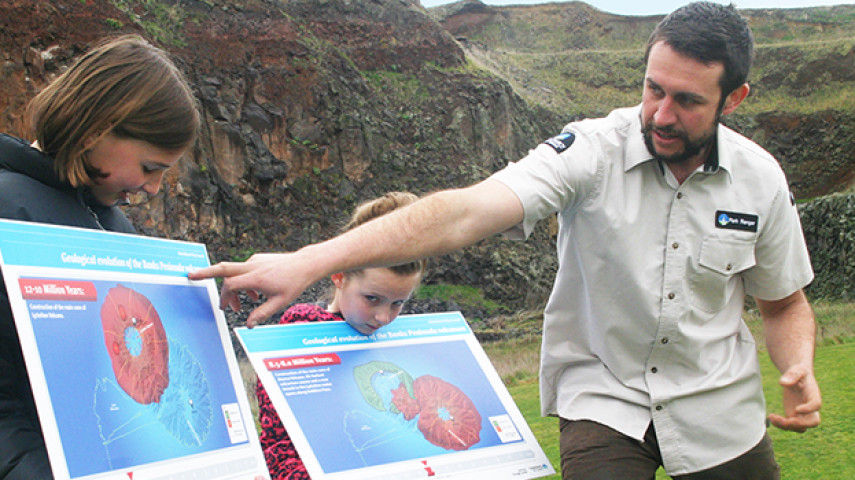Over in the wetland, students will discover how resources have been traditionally used in the past, and explore how we can all protect and enjoy our green spaces today.

Book a Learning Through Action school programme
Risk analysis and management information (RAMS) will be sent out once a programme booking is confirmed. If you require this at any other stage please email LTA@ccc.govt.nz or contact us(external link).

| Year level | 3 to 10 |
|---|---|
| Curriculum level | 2 to 6 |
| Availability | Year-round |
| Times | 9.30am to 12noon or 12.15pm to 2.30pm |
| Site | Halswell Quarry Park |
| Cost | Free |
| Number of students | Maximum of 35 |
If the focus of your visit is geology and rock types, we recommend you combine a visit to Halswell Quarry with a visit to Canterbury Museum(external link). For more information contact 03 366 9429 ext 804. Alternatively, contact Heritage New Zealand for an educational heritage pack information@heritage.org.nz.
- Geological change
- Volcanism
- Heritage
- Māori world view
- Traditional resources of a wetland
Students will enjoy a trip back through time as they learn about the geological history and formation of the rock at Halswell Quarry.
They will be challenged to identify and classify different rock types and their uses throughout Canterbury.
Students will explore the social history of the quarry and discover what daily life was like for the quarrymen in the longest-running commercial quarry in Australasia with a hands-on building challenge.
Over in the wetland, students will discover how resources have been traditionally used in the past, and explore how we can all protect and enjoy our green spaces today.
We are learning to:
- Understand the geological and social history of Halswell Quarry Park from Pākehā and Māori perspectives
- Identify different rock types and their uses
- Describe how local iwi used resources from the wetlands
- Identify at least one way we can act as kaitiaki of our regional parks
Using language, symbols and texts
Students will use oral, written, and visual texts to interpret key terms and concepts and to identify timelines, interpret maps and legends.
Thinking
Students will use creative, critical and meta-cognitive processes to problem solve and expand knowledge of the local area, heritage sites and native species and their uses.
Managing self
Students will manage their learning and think and act independently.
Participating and contributing
Students will contribute to group tasks (timeline, rock wall building, tree search, moa hunt).
Relating to others
Students will work collaboratively and supportively to complete tasks.
|
Curriculum area |
Strand and level |
Objective |
|---|---|---|
|
Science Pūtaiao |
Nature of Science Levels 2 -6 |
Understanding about science Investigating in science |
|
Social Sciences Tikanga ā-Iwi |
Planet Earth and Beyond Levels 2-6 |
Earth Systems Interacting Systems |
|
Levels 2 - 6 |
Geography Social Studies History |
